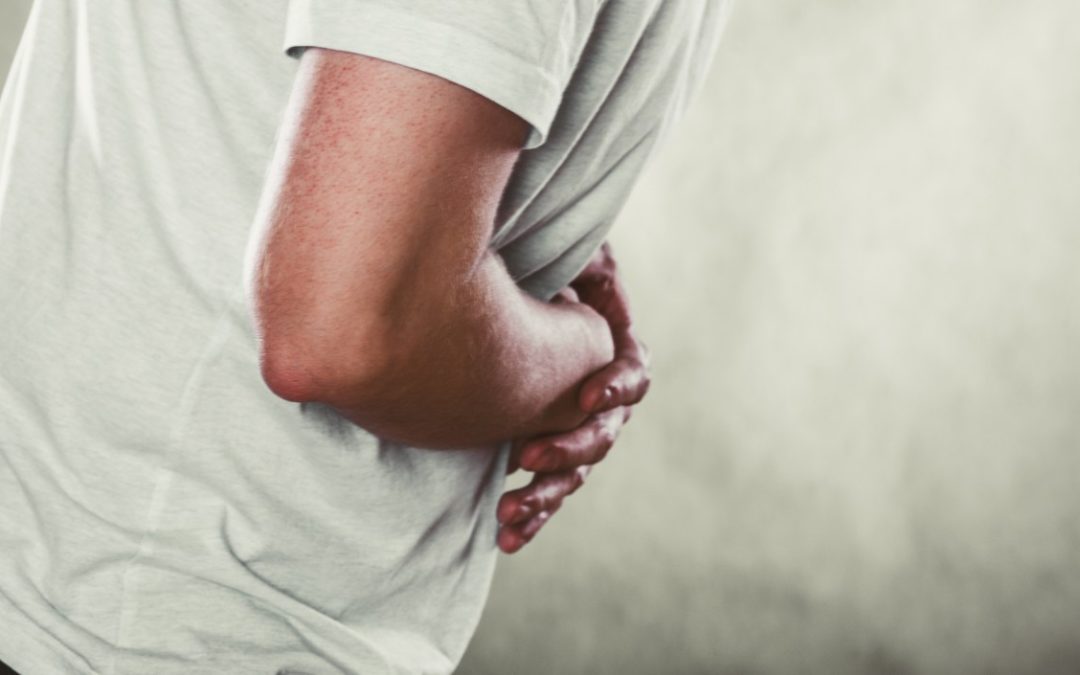Congratulations on taking the brave step toward reclaiming your health through bariatric surgery! While gastric sleeve surgery (also known as sleeve gastrectomy) offers numerous benefits, it’s common to encounter some challenges along the way. One of these challenges, constipation, can be uncomfortable and frustrating. So you may be wondering what helps constipation after gastric sleeve.
What Causes Constipation After Gastric Sleeve Surgery?
Constipation after gastric sleeve surgery can happen for a few reasons. The surgery changes how your digestive system works by making your stomach smaller. This can affect how food moves through your system, sometimes slowing things down and causing irregular poops.
On top of that, the pain meds you take after surgery can also make things sluggish in your gut. And if you’re not moving around much while you recover, that can make constipation even worse. So you may be dealing with multiple factors and everything adds up and makes constipation more likely.
But here’s the good news: knowing about these factors means you can take steps to help constipation after gastric sleeve surgery. Just pay attention to your diet, keep yourself hydrated, get moving, and have a chat with your doctor about any meds that might be causing trouble. These simple steps can make a big difference.
Understanding the Impact of Bariatric Surgery on Digestive Health
After bariatric surgery, your digestive tract undergoes significant changes. These changes affect how food moves through your system and can impact bowel movements, potentially leading to constipation. Drinking an adequate amount of water is crucial for maintaining regular bowel movements, especially after gastric sleeve surgery.
Aim for at least eight glasses of water (92 ounces) daily to keep your digestive system hydrated and functioning smoothly. In fact, you’ll be on an all-liquid diet for the first two weeks after surgery. Just remember to sip water all day instead of gulping down water a few times daily. This could lead to pain, discomfort, and dumping syndrome because your smaller stomach won’t be able to handle too much liquid at once.
Finally, as you ease back into your regular eating habits, consider using Miralax if you’re experiencing any difficulties. We advise against using other quick fixes like milk of magnesia, laxatives, or fiber supplements. These options can lead to dehydration and may be harsh on your stomach, especially after bariatric surgery. Unlike traditional laxatives, Miralax isn’t addictive, so you can use it daily if needed.
Balancing Pain Medications and Bowel Health
Pain medications prescribed after surgery can contribute to constipation. Talk to your healthcare provider about managing pain while prioritizing bowel health. They may recommend alternative medications or additional strategies to alleviate discomfort.
The Importance of Physical Activity
Getting moving after bariatric surgery isn’t just about shedding pounds—it’s also about keeping things moving in your gut! Physical activity stimulates your digestive system, making it easier to have regular bowel movements. Even a short walk or gentle exercise session can do wonders for relieving constipation.
Plus, staying active helps maintain overall health and supports your weight loss journey. So, when you’re ready, get moving—it’s not just good for your waistline, but for your digestive system too!
FAQs
How soon after gastric sleeve surgery can constipation occur?
Constipation can occur at any time after gastric sleeve surgery, but it’s most common during the initial recovery period when dietary changes and pain medications are factors.
Are there specific foods that can help prevent constipation after gastric sleeve surgery?
Once you’re able to, incorporating high-fiber foods such as fruits, vegetables, and other foods into your diet (as prescribed by your WeightWise surgeon) can help prevent constipation. Additionally, staying hydrated by drinking plenty of water is essential–sipping, not gulping.
Is constipation after gastric sleeve surgery normal?
Yes, constipation is a common issue after gastric sleeve surgery due to changes in the digestive system and dietary habits. However, it’s essential to address constipation promptly to prevent discomfort and complications. Fortunately, constipation is usually short-lived and goes away once you’ve settled into your new normal of eating.
How can I manage constipation without relying on medications?
In addition to dietary changes, increasing physical activity and practicing relaxation techniques can help manage constipation. If constipation remains a problem, talk with your WeightWise team for help.
Are there any warning signs of severe constipation after gastric sleeve surgery?
While constipation is common, severe or prolonged constipation accompanied by symptoms such as severe abdominal pain, vomiting, or inability to pass gas or stool may indicate a more serious issue and should prompt immediate medical attention.
Constipation after gastric sleeve weight loss surgery is a common concern, but you can manage it effectively with the right strategies. By prioritizing hydration, physical activity, and open communication with your healthcare provider, you can ensure smooth sailing on your weight loss journey.
Remember, you’re not alone, and support is available every step of the way. At WeightWise, we take an overall view of weight loss, starting with an initial consultation, the surgery itself, and offering guidance from dietitians, exercise specialists, and patient advocates. Together we can work towards a happy, healthy, and comfortable recovery after gastric sleeve, gastric bypass, or whatever procedure is right for you.

